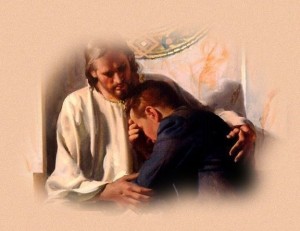Hearing God
To him the gatekeeper opens. The sheep hear his voice, and he calls his own sheep by name and leads them out.
John 10:3
As believers, we enjoy the Blessed Trinity’s personal presence through the indwelling Holy Spirit. Therefore, we should experience an on-going conversation with God: speaking to God and being spoken to by his Spirit. The normal Christian life is God speaking, directing, and guiding us by his love and through his Spirit. In turn, we can respond in delight by honoring his leadership through obedience to his will. This process of being directed, guided, and led by the Holy Spirit in the affairs of everyday life is called hearing God (John 10:25-30).
Personal Presence
Dallas Willard affirms that as believers, we were meant to live in God’s presence and fellowship.
People are meant to live in an ongoing conversation with God, speaking and being spoken to by him. God’s visits to Adam and Eve in the garden, Enoch’s walks with God and the face-to-face conversations between Moses and Jehovah are all commonly regarded as highly exceptional moments in the religious history of humankind.
Aside from their obvious unique historical role, however, these moments are not meant to be exceptional at all. Rather they are examples of the normal human life God intended for us. God’s indwelling his people through personal presence and fellowship. Given who we are by basic nature, we live—really live—only through God’s regular speaking in our souls and thus ‘by every word that comes from the mouth of God’ (Deut. 8:3).
Dallas Willard, Hearing God Through the Year (Downers Grove, IL: InterVarsity Press, 2004), 9.
Inward Call
God’s voice may be an inward drawing, an internal prodding, or a wooing sense in one’s spirit. On occasion, God’s direction may come as an outward audible voice, which sounds much like our own human voice (1 Sam. 3: 1-21). Mostly, God speaks in our hearts as a thought that is much like our own reasoning. God’s thought appears to come out of nowhere and is not an idea we normally would have conceived. Dallas Willard calls this type of inward direction, “a God characteristic type of thought†(1 Kings 19: 12). God is not playing a cat and mouse game disappearing when we most need him. He is no trickster playing with our lives while we stumble around in the dark. The Lord will make his will known even if he has to repeat it continually.
Sin’s Dullness
God’s guidance is restricted and hindered by unrepentant sin. Many believers do not hear God because they are unwilling to do God’s will. If God is silent, ask the Holy Spirit to reveal hidden sin.He will be faithful to convict us by exposing our sin, so that, we might find forgiveness and mercy. Continual disobedience hardens our hearts, thereby inhibiting God’s personal and direct guidance.
If we desire intimacy, we need to open our spirits to Christ’s Lordship expressing to God our willingness to change. God’s direction may be correcting, even rebuking, but his voice always contains the enabling grace to obey. If sin is not the reason for God’s silence, then move forward, knowing that God has promised to be with us (Matt 28:20, Heb.13:5). God especially works through our sanctified reasoning as we grow in maturity and Christlikeness. Remember, the voice of God will not lead us to be disobedient to his Word, the Bible (Psa. 119:105).
To be continued: “Hearing God for the New Year: Part Two” will be posted tomorrow.









